#ToyotaRav4Hybrid
Fluke? Electrified RAV4 Outsells Normal RAV4
Please don’t send us emails complaining about the use of the word “normal” in a headline. Yes, the Toyota RAV4 Hybrid is still a RAV4. Yes, it has every right to exist, and it makes its parents proud, each and every day.
Especially lately, given that the electrified version of the country’s top-selling compact crossover outsold its conventional sibling in June. Not that the hybrid RAV4 was a sales slug to begin with.
Toyota, Aka Hybrid King, Storms Into New Year
We told you late last year how the Toyota RAV4 Hybrid is the hybrid the Toyota Prius wishes it could be. The two models have essentially swapped positions, with eco-minded American consumers now eschewing the pius hatch in favor of the brawnier image and accommodating cabin of the gas-electric compact CUV.
It brings to mind this morning’s QOTD, frankly.
End-of-year sales starkly illustrated the diverging paths of these two models. This week, the automaker is basking in more good sales news, both for hybrids and conventional vehicles. On the electrified front, at the very least, there’s good reason for Toyota to be very optimistic about 2020.
Kentucky Kicks Off Production of Toyota RAV4 Hybrid
Toyota Motor Manufacturing Kentucky (TMMK) has announced the start of production of the new RAV4, the best selling vehicle in America that isn’t a pickup. Officially, TMMK is handling the hybrid version while other sites — like Toyota Motor Manufacturing Canada (TMMC) — takes care of the non-hybridized crossover.
Considering the RAV4 Hybrid just had its best sales year on record, moving 92,525 units in 2019, Toyota’s probably feeling pretty good about its decision. Total U.S. deliveries of the RAV4 hit 448,068 last year, marking another sales record for the brand. The redesigned models (introduced late in 2018) are already everywhere, making one grateful that they don’t necessitate the same cordial acknowledgement expected from motorcyclists and Jeep Wrangler owners. Your arm would be exhausted before making it out of the driveway.
Drinking Problem: Owners Cry Foul Over Toyota RAV4 Hybrid Gas Tank
Buyers of the revamped-for-2019 Toyota RAV4 Hybrid seem pleased with their vehicle’s upgraded fuel economy, but ask them about range, and you’re liable to get an earful.
In an unusual development not often associated with non-EVs, RAV4 Hybrid owners have begun complaining about lackluster driving distance — an issue that stems from the model’s redesigned gas tank.
The Toyota RAV4 Hybrid Is Now, by Far, Toyota's Best-selling Hybrid in America, Easily Outselling the Prius in 2019
You weren’t crazy. In 2000, when the Toyota Prius first arrived in the United States only slightly behind the Honda Insight, it wasn’t unreasonable for you to wonder whether the odd little duck had a future. And to be fair, it didn’t. It wasn’t until Toyota launched a new generation of the Prius as a more practical liftback for MY2004 that a hybridized future appeared plausible.
With little in the way of competition, Toyota sold 107,897 copies of the Prius in the U.S. in 2005. That made the Prius more popular than the Volkswagen Jetta and Mazda 3; more popular than the Toyota RAV4, as well. By 2012, Toyota had expanded the Prius family to include a plug-in, a subcompact Prius C, and a Prius V wagon. The result: U.S. Prius sales peaked at 236,655 units in 2012.
And then, for the Prius, it all fell apart. Half a decade later, total Prius sales were less than half that strong. In 2019, Toyota is tracking toward fewer than 70,000 U.S. Prius sales, the worst year for the nameplate since 2004.
Yet Toyota is on a pace for its hybrid family to earn roughly 226,000 sales in 2019. Granted, those aren’t 2012 levels. And selling at that level does require an array of hybrid options. But regardless, it’s clear Toyota has found its Prius replacement. As the Prius’s star fades, the RAV4 Hybrid is now Toyota’s primary hybrid volume driver.
Volume Booster: Toyota's RAV4 Hybrid Gets a Price Haircut
Even though it represents a small slice of the model’s overall volume, Toyota owes a lot to the hybrid version of its top-selling RAV4 compact crossover. Without it, the RAV4 wouldn’t actually be the United States’ top-selling compact crossover.
Through the end of September, Toyota sold 36,352 hybrid variants, pushing the RAV4 nameplate ahead of the Nissan Rogue/Rogue Sport family. Sales of the hybrid model are up 10 percent this year. Realizing it has a good thing on its hands, Toyota seems eager to get more RAV4 Hybrids into the hands of green-car shoppers looking for more room to go with their fuel economy.
The automaker is now planning a new entry-level trim for the 2018 RAV4 Hybrid.
If Current Trends Hold, the Toyota Prius Will Not Be America's Best-selling Hybrid in 2018
If current marketplace trends hold, the Toyota Prius will not be America’s best-selling hybrid by next year.
The steep rate of decline experienced by the Prius in 2017 is no surprise. For one thing, it’s a continuation of the decline we saw earlier in the fourth-gen Prius’ tenure. For another, there are new Prius competitors, such as the Hyundai Ioniq and Toyota’s highly efficient 2018 Camry Hybrid. But the Prius’s rapid slide — sales are down by a third so far this year — is also what Toyota predicted at the turn of the calendar.
Yet even if the rate of Prius decline suddenly and unexpectedly slows, it’s difficult to imagine a scenario in which the Toyota Prius, long the dominant hybrid in America, holds onto its crown as the top seller for long.
The victor in 2018 will, however, almost certainly be a Toyota.
Toyota Prius Sales Will Plunge In 2017
2017 will be the fifth consecutive year of U.S. year-over-year sales decline for the venerable Toyota Prius.
The core member of the four-pronged Prius lineup — this non-Prime liftback — was once a seemingly unstoppable presence in America. Annual volume shot beyond 100,000 units in 2005 and rose to an all-time high of 181,221 sales in 2007.
But America’s post-recession enjoyment of lower fuel prices and an accompanying turn to SUVs and crossovers (plus a measure of distaste for the current model’s egregious exterior styling) led to a 98,866-unit U.S. sales result in 2016, a 12-year low for the Prius.
2017 will be worse. “We’re going to follow the market,” Toyota Motor Sales USA’s vice president for automotive operations, Bob Carter, told Wards Auto.
What’s that mean?
2016 Toyota RAV4 Hybrid Review - The Crossover Unicorn
A few short weeks ago, I was inside a very purple 2016 RAV4 marveling that Toyota’s compact crossover nearly outsells the Mazda brand. My bottom line for that RAV4 read like this:
Why are the RAV4’s sales so high when there are more fun options out there? The reasons can be found in its strong value proposition, a soft ride about which journalists often complain, included scheduled maintenance and Toyota’s reputation for reliability.
The 2016 RAV4 isn’t going to light many souls on fire, but it gives the average CUV shopper more of what they obviously want.
Except fuel economy or performance.
That’s where the first full-hybrid compact crossover since Ford abandoned the Escape Hybrid five years ago comes in.
New York 2015: Toyota RAV4 Hybrid
And here we have the final debut of the New York Auto Show…a hybrid version of the Toyota RAV4.



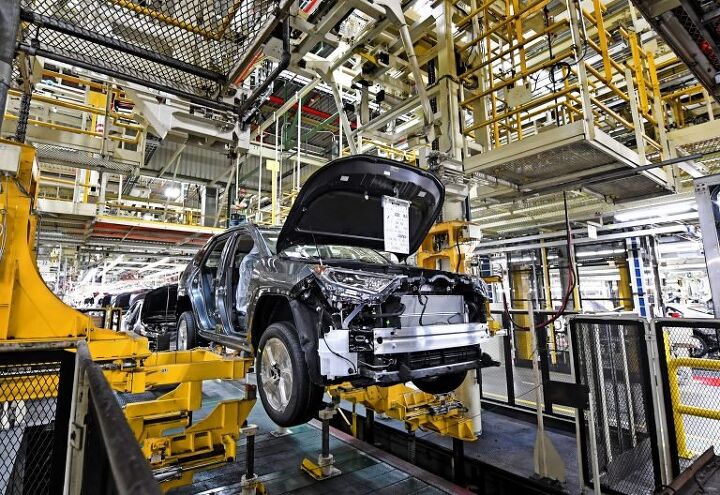
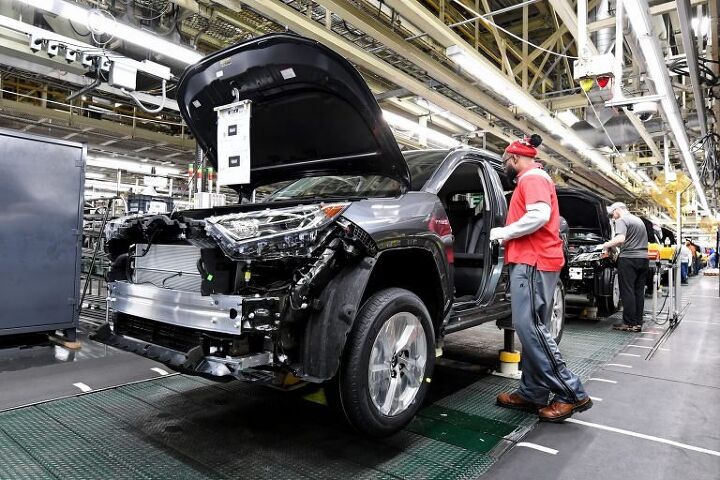
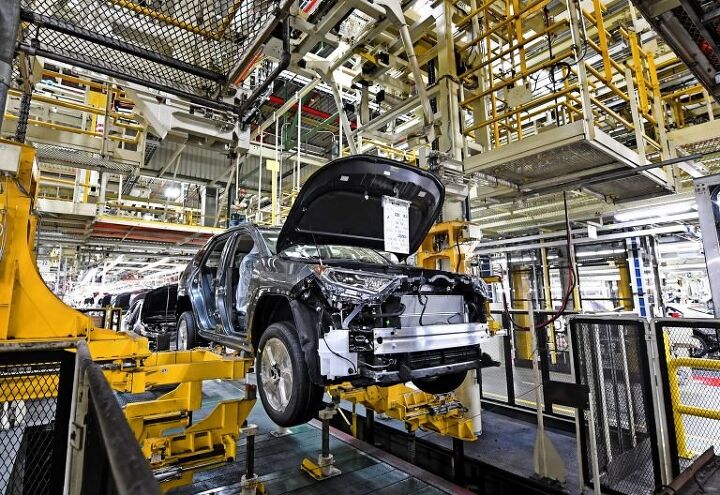

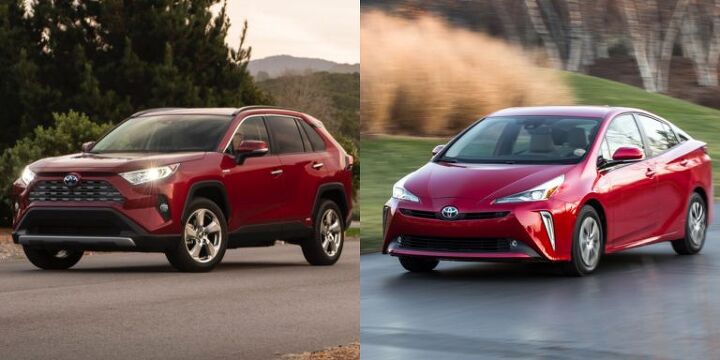
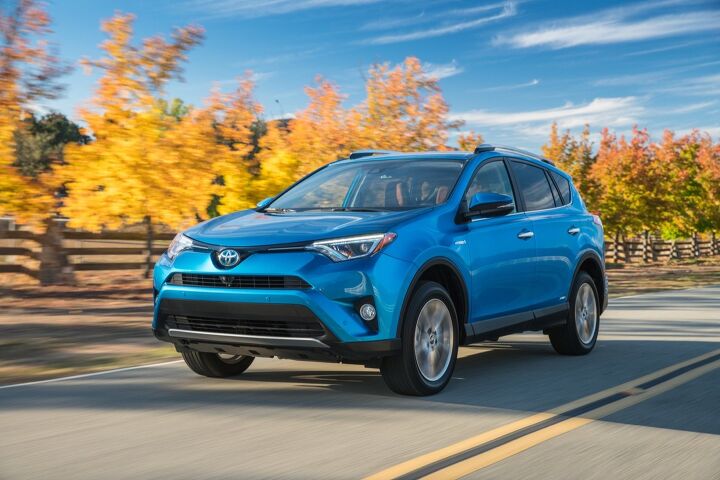


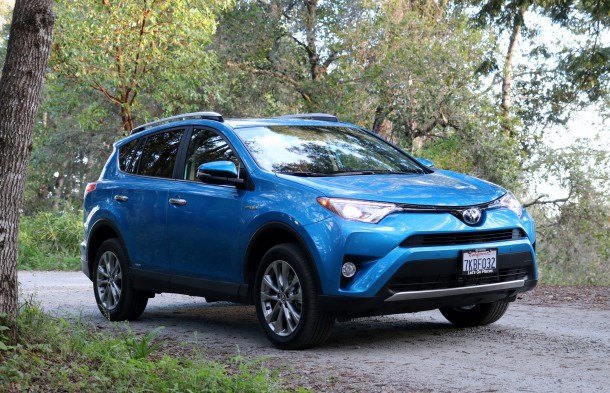
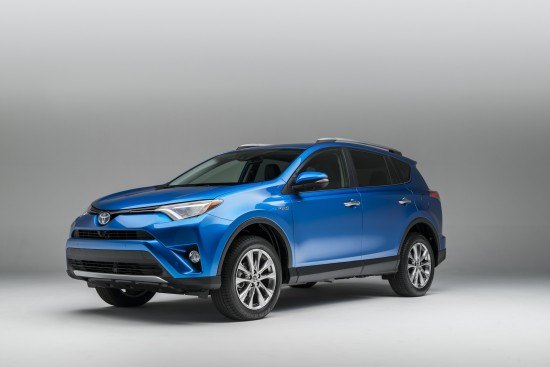












Recent Comments